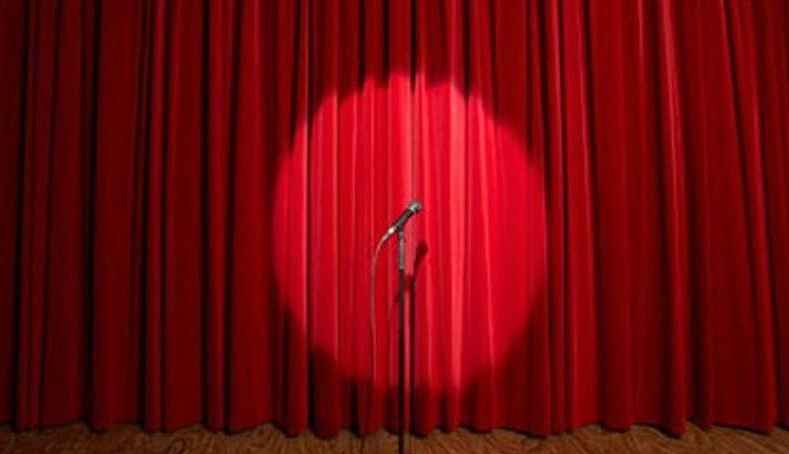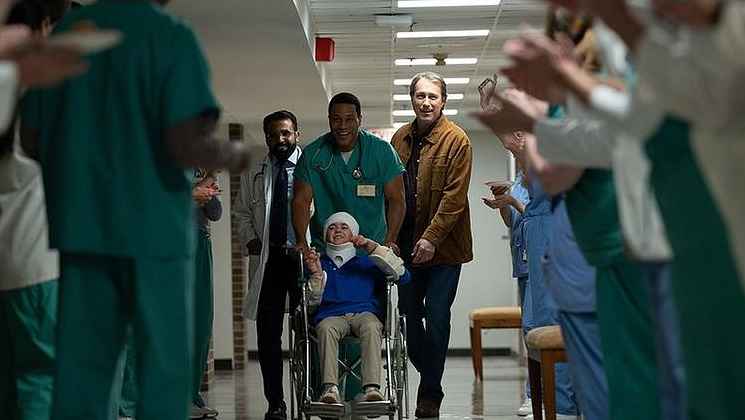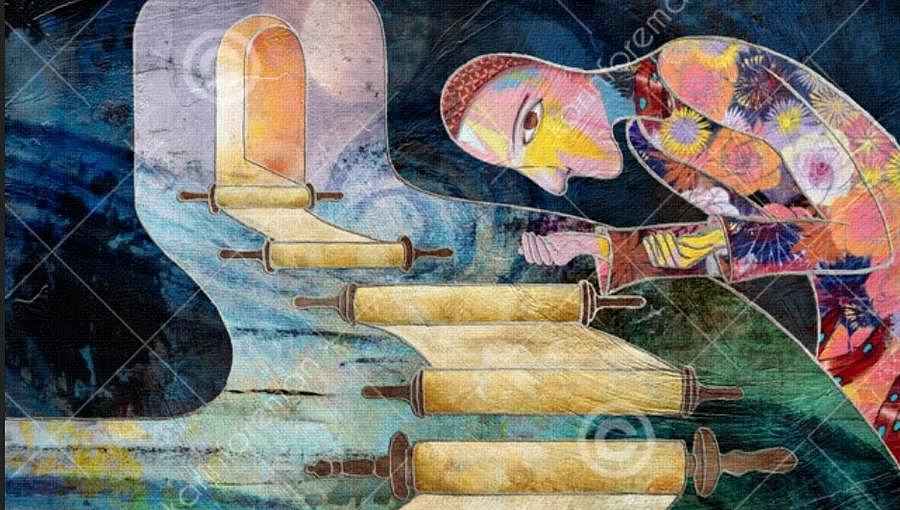





See listing of Recent and Most Popular articles on the Home Page
Health & Wellness
Category: Faith, Religion & Spirituality / Topics: Advice, Guidance & Mentoring • Christian Life • Coping • Dying and Death • Discipline • Disease • Faith • Fears, Concerns • Learning
Growing My Faith in the Face of Death
by Timothy Keller / The Atlantic
Posted: March 25, 2021
I spent a lifetime counseling others before my diagnosis. Will I be able to take my own advice?…
Edtior's Note: The following is an excerpt of a much longer artilce (recommended by a friend) that appeared in The Atlantic, March 7, 2021. Timothy Keller is founding pastor of Redeemer Presbyterian Chiurch in Manhattan. A link to the full article, which inlcudes links to additional resources will be found at the bottom of this page.
I have spent a good part of my life talking with people about the role of faith in the face of imminent death. Since I became an ordained Presbyterian minister in 1975, I have sat at countless bedsides, and occasionally even watched someone take their final breath. I recently wrote a small book, On Death, relating a lot of what I say to people in such times. But when, a little more than a month after that book was published, I was diagnosed with pancreatic cancer, I was still caught unprepared.
On the way home from a conference of Asian Christians in Kuala Lumpur in February 2020, I developed an intestinal infection. A scan at the hospital showed what looked like enlarged lymph nodes in my abdomen: No cause for concern, but come back in three months just to check. My book was published. And then, while all of us in New York City were trying to protect ourselves from COVID-19, I learned that I already had an agent of death growing inside me.
I spent a few harrowing minutes looking online at the dire survival statistics for pancreatic cancer, and caught a glimpse of On Death on a table nearby. I didn’t dare open it to read what I’d written.
My wife, Kathy, and I spent much time in tears and disbelief. We were both turning 70, but felt strong, clear-minded, and capable of nearly all the things we have done for the past 50 years. “I thought we’d feel a lot older when we got to this age,” Kathy said. We had plenty of plans and lots of comforts, especially our children and grandchildren. We expected some illness to come and take us when we felt really old. But not now, not yet. This couldn’t be; what was God doing to us? The Bible, and especially the Psalms, gave voice to our feelings: “Why, O Lord, do you stand far off?” “Wake up, O Lord. Why are you sleeping?” “How long, O Lord? Will you forget me forever?”
A significant number of believers in God find their faith shaken or destroyed when they learn that they will die at a time and in a way that seems unfair to them. Before my diagnosis, I had seen this in people of many faiths. One woman with cancer told me years ago, “I’m not a believer anymore—that doesn’t work for me. I can’t believe in a personal God who would do something like this to me.” Cancer killed her God.
What would happen to me? I felt like a surgeon who was suddenly on the operating table. Would I be able to take my own advice?
One of the first things I learned was that religious faith does not automatically provide solace in times of crisis. A belief in God and an afterlife does not become spontaneously comforting and existentially strengthening. Despite my rational, conscious acknowledgment that I would die someday, the shattering reality of a fatal diagnosis provoked a remarkably strong psychological denial of mortality. Instead of acting on Dylan Thomas’s advice to “rage, rage against the dying of the light,” I found myself thinking, What? No! I can’t die. That happens to others, but not to me. When I said these outrageous words out loud, I realized that this delusion had been the actual operating principle of my heart.
The cultural anthropologist Ernest Becker argued that the denial of death dominates our culture, but even if he was right that modern life has heightened this denial, it has always been with us. As the 16th-century Protestant theologian John Calvin wrote, “We undertake all things as if we were establishing immortality for ourselves on earth. If we see a dead body, we may philosophize briefly about the fleeting nature of life, but the moment we turn away from the sight the thought of our own perpetuity remains fixed in our minds.” Death is an abstraction to us, something technically true but unimaginable as a personal reality.
For the same reason, our beliefs about God and an afterlife, if we have them, are often abstractions as well. If we don’t accept the reality of death, we don’t need these beliefs to be anything other than mental assents. A feigned battle in a play or a movie requires only stage props. But as death, the last enemy, became real to my heart, I realized that my beliefs would have to become just as real to my heart, or I wouldn’t be able to get through the day. Theoretical ideas about God’s love and the future resurrection had to become life-gripping truths, or be discarded as useless.
I’ve watched many others partake of this denial of death and then struggle when their convictions evaporate, and not just among the religious. I spent time as a pastor with sick and dying people whose religious faith was nominal or nonexistent. Many had a set of beliefs about the universe, even if they went largely unacknowledged—that the material world came into being on its own and that there is no supernatural world we go to after death. Death, in this view, is simply nonexistence, and therefore, as the writer Julian Barnes has argued, nothing to be frightened of. These ideas are items of faith that can’t be proved, and people use them as Barnes does, to stave off fear of death. But I’ve found that nonreligious people who think such secular beliefs will be comforting often find that they crumple when confronted by the real thing.
So when the certainty of your mortality and death finally breaks through, is there a way to face it without debilitating fear? Is there a way to spend the time you have left growing into greater grace, love, and wisdom? I believe there is, but it requires both intellectual and emotional engagement: head work and heart work.
I use the terms head and heart to mean reasoning and feeling, adapting to the modern view that these two things are independent faculties. The Hebrew scriptures, however, see the heart as the seat of the mind, will, and emotions. Proverbs says, “As he thinketh in his heart, so is he.” In other words, rational conviction and experience might change my mind, but the shift would not be complete until it took root in my heart. And so I set out to reexamine my convictions and to strengthen my faith, so that it might prove more than a match for death.
Paul Brand, an orthopedic surgeon, spent the first part of his medical career in India and the last part of his career in the U.S. “In the United States … I encountered a society that seeks to avoid pain at all costs,” he wrote in his recent memoir. “Patients lived at a greater comfort level than any I had previously treated, but they seemed far less equipped to handle suffering and far more traumatized by it.”
Why is it that people in prosperous, modern societies seem to struggle so much with the existence of evil, suffering, and death? In his book A Secular Age, the philosopher Charles Taylor wrote that while humans have always struggled with the ways and justice of God, until quite recently no one had concluded that suffering made the existence of God implausible. For millennia, people held a strong belief in their own inadequacy or sinfulness, and did not hold the modern assumption that we all deserve a comfortable life. Moreover, Taylor has argued, we have become so confident in our powers of logic that if we cannot imagine any good reason that suffering exists, we assume there can’t be one.
But if there is a God great enough to merit your anger over the suffering you witness or endure, then there is a God great enough to have reasons for allowing it that you can’t detect. It is not logical to believe in an infinite God and still be convinced that you can tally the sums of good and evil as he does, or to grow angry that he doesn’t always see things your way. Taylor’s point is that people say their suffering makes faith in God impossible—but it is in fact their overconfidence in themselves and their abilities that sets them up for anger, fear, and confusion.
When I got my cancer diagnosis, I had to look not only at my professed beliefs, which align with historical Protestant orthodoxy, but also at my actual understanding of God. Had it been shaped by my culture? Had I been slipping unconsciously into the supposition that God lived for me rather than I for him, that life should go well for me, that I knew better than God does how things should go? The answer was yes—to some degree. I found that to embrace God’s greatness, to say “Thy will be done,” was painful at first and then, perhaps counterintuitively, profoundly liberating. To assume that God is as small and finite as we are may feel freeing—but it offers no remedy for anger.
Another area of head work for me had to do with Jesus’s resurrection. Ironically, I had already begun working on a book about Easter. Before cancer, the resurrection had been a mostly theoretical issue for me—but not now. I’m familiar with the common charge that any belief in an afterlife is mere wish fulfillment without grounding in fact—and that belief in Jesus is in the same category as faith in the Flying Spaghetti Monster. But over the past 20 years, I’ve been drawn to the work of the British biblical scholar N. T. Wright, who mounts a historical case for Jesus’s bodily resurrection.
I returned to his material now, with greater skepticism than I had previously applied. I didn’t want to be taken in. But as I reread his arguments, they seemed even more formidable and fair to me than they had in the past. They gave me a place to get my footing. Still, I needed more than mental assent to believe in the resurrection.
The heart work came in as I struggled to bridge the gap between an abstract belief and one that touches the imagination. As the early American philosopher Jonathan Edwards argued, it is one thing to believe with certainty that honey is sweet, perhaps through the universal testimony of trusted people, but it is another to actually taste the sweetness of honey. The sense of the honey’s sweetness on the tongue brings a fuller knowledge of honey than any rational deduction. In the same way, it is one thing to believe in a God who has attributes such as love, power, and wisdom; it is another to sense the reality of that God in your heart. The Bible is filled with sensory language. We are not only to believe that God is good but also to “taste” his goodness, the psalmist tells us; not just to believe that God is glorious and powerful but also to “see” it with “the eyes of the heart,” it says in Ephesians.
On December 6, 1273, Thomas Aquinas stopped writing his monumental Summa Theologiae. When asked why by his friend Reginald, he replied that he had had a beatific experience of God that made all his theology “seem like straw” by comparison. That was no repudiation of his theology, but Thomas had seen the difference between the map of God and God himself, and a very great difference it was. While I cannot claim that any of my experiences of God in the past several months have been “beatific,” they have been deeper and sweeter than I have known before.
My path to this has involved three disciplines. Continue reading from the full article in The Atlantic.
Timothy Keller is the founding pastor of Redeemer Presbyterian Church in Manhattan, chairman of Redeemer City to City, and author of the forthcoming book Hope in Times of Fear: The Resurrection and the Meaning of Easter.
Search all articles by Timothy Keller
Posted: March 25, 2021 Accessed 906 times
![]() Go to the list of most recent Health & Wellness Articles
Go to the list of most recent Health & Wellness Articles
![]() Search Health & Wellness (You can expand the search to the entire site)
Search Health & Wellness (You can expand the search to the entire site)
![]() Go to the list of Most Recent and Most Popular Articles across the site (Home Page)
Go to the list of Most Recent and Most Popular Articles across the site (Home Page)
 Loading requested view...
Loading requested view...